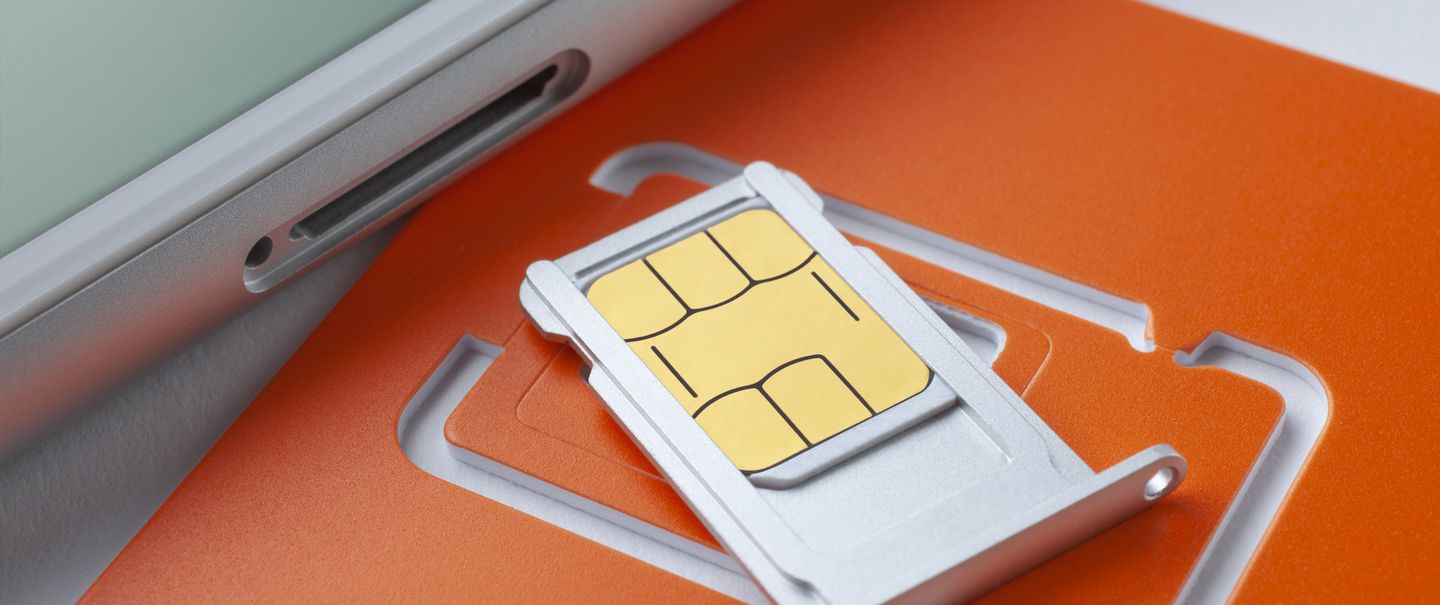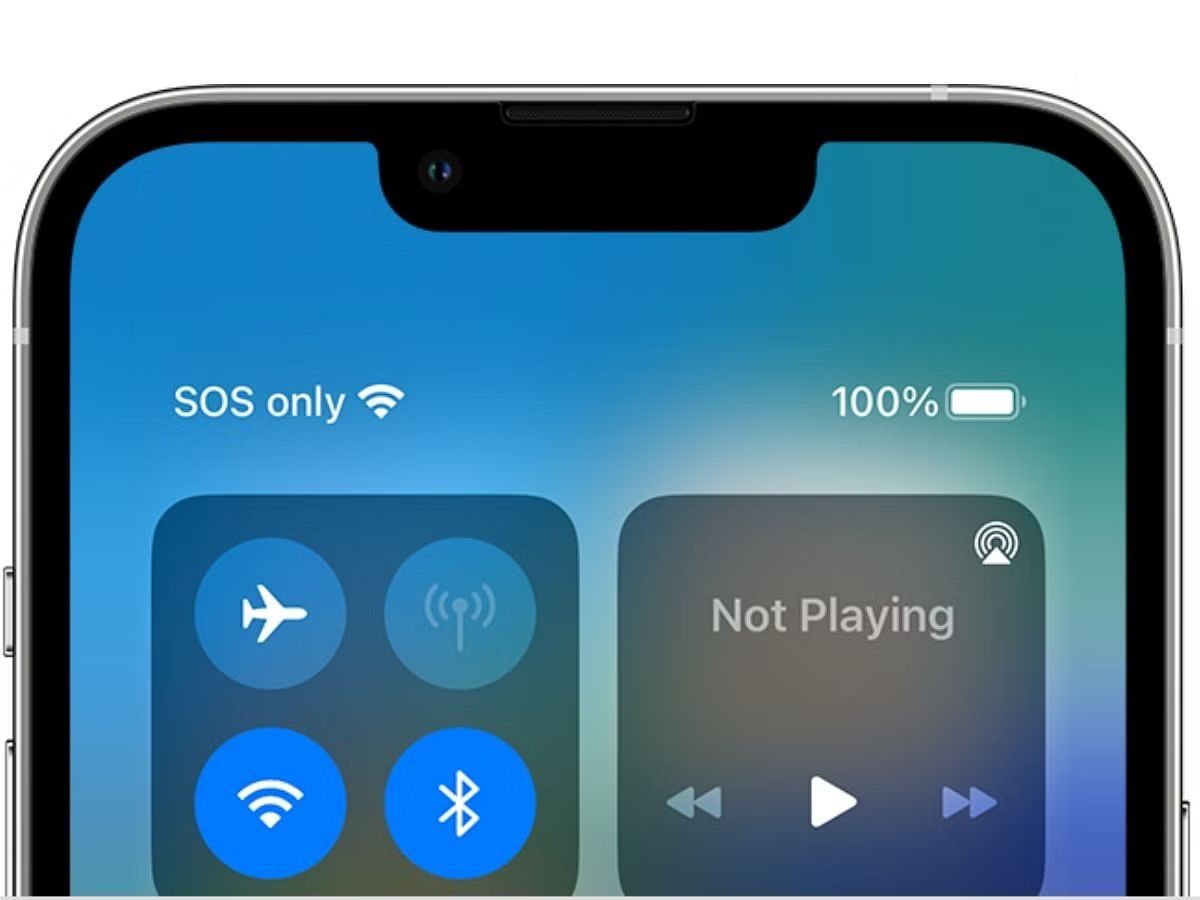Introduction
When your mobile device displays the dreaded "SIM Card Not Provisioned" message, it can be incredibly frustrating and inconvenient. This issue typically arises when your SIM card is not properly activated or registered with your mobile carrier. As a result, your device loses its ability to connect to the mobile network, rendering it unable to make calls, send texts, or access mobile data.
The "SIM Card Not Provisioned" error can occur for various reasons, such as a new SIM card that hasn't been activated, a SIM card that has been deactivated due to non-usage, or a faulty SIM card. Additionally, this issue may arise when switching to a new mobile carrier or when there are network-related problems on the carrier's end.
Fortunately, resolving the "SIM Card Not Provisioned" issue is often straightforward and can be accomplished without extensive technical knowledge. By following a few simple steps and understanding the underlying causes, you can quickly regain access to your mobile network and restore the full functionality of your device.
In the following sections, we will delve into the root causes of the "SIM Card Not Provisioned" problem and provide a comprehensive tutorial on resolving this frustrating issue. By the end of this guide, you will be equipped with the knowledge and practical steps needed to troubleshoot and fix this common mobile device issue. So, let's dive in and unravel the mystery behind the "SIM Card Not Provisioned" error!
Understanding the "SIM Card Not Provisioned" Issue
The "SIM Card Not Provisioned" issue typically arises when a mobile device is unable to establish a connection with the mobile network due to problems related to the SIM card. This error message can manifest in various forms, such as "SIM Not Provisioned," "Insert SIM," or "SIM Card Registration Failed," depending on the specific device and mobile carrier.
One of the primary reasons for encountering this issue is that the SIM card has not been properly activated or registered with the mobile carrier. When you purchase a new SIM card, it needs to be activated by the carrier before it can be used to make calls, send texts, or access mobile data. Failure to complete the activation process can result in the "SIM Card Not Provisioned" error.
Another common scenario leading to this issue is when a SIM card has been deactivated due to prolonged non-usage. If a SIM card remains inactive for an extended period, the mobile carrier may deactivate it as part of their standard procedures. When attempting to use a deactivated SIM card, the device will display the "SIM Card Not Provisioned" message, indicating that the SIM card is no longer valid for network connectivity.
Furthermore, switching to a new mobile carrier or encountering network-related problems with the current carrier can also trigger the "SIM Card Not Provisioned" error. When transitioning to a different carrier, it is essential to ensure that the new SIM card is correctly provisioned and registered to avoid connectivity issues. Additionally, temporary network disruptions or issues on the carrier's end can lead to the inability to provision the SIM card, resulting in the error message being displayed on the device.
In summary, the "SIM Card Not Provisioned" issue stems from problems related to SIM card activation, deactivation due to non-usage, or network-related issues during the provisioning process. Understanding these underlying causes is crucial for effectively troubleshooting and resolving this common mobile device problem. With a clear grasp of the factors contributing to this issue, you can proceed to the next section to learn the essential steps for fixing the "SIM Card Not Provisioned" error.
Now that we have uncovered the reasons behind the "SIM Card Not Provisioned" issue, let's delve into the practical steps to resolve this frustrating problem and restore seamless connectivity to your mobile device.
Steps to Fix the "SIM Card Not Provisioned" Issue
1. Verify SIM Card Activation
The first step in resolving the "SIM Card Not Provisioned" issue is to ensure that your SIM card is correctly activated by your mobile carrier. If you have recently obtained a new SIM card, it is essential to confirm that the activation process has been completed. This typically involves inserting the SIM card into your device and following the activation instructions provided by your carrier. If the activation is pending, contact your carrier's customer support to expedite the process.
2. Check SIM Card Compatibility
Verify that your device is compatible with the SIM card you are using. Incompatible SIM cards can trigger the "SIM Card Not Provisioned" error. If you have recently switched to a new device or obtained a replacement SIM card, ensure that it is compatible with your specific mobile device model and network carrier.
3. Restart Your Device
Sometimes, a simple restart can resolve connectivity issues related to the SIM card. Power off your device, remove the SIM card, reinsert it securely, and then power on the device. This can help re-establish the connection between the SIM card and the mobile network, potentially resolving the "SIM Card Not Provisioned" problem.
4. Contact Your Mobile Carrier
If the issue persists after verifying activation and compatibility, contacting your mobile carrier's customer support is advisable. They can provide insights into the status of your SIM card, troubleshoot network-related problems, and guide you through specific steps to provision the SIM card correctly.
5. Replace the SIM Card
If your SIM card is damaged or has been deactivated due to non-usage, replacing it with a new one may be necessary. Visit your mobile carrier's store or website to obtain a replacement SIM card. Once you have the new SIM card, ensure it is activated and provisioned according to the carrier's instructions.
6. Network Reset
In some cases, performing a network reset on your device can help resolve persistent connectivity issues. This process varies depending on the device and operating system, so refer to your device's user manual or contact customer support for guidance on performing a network reset.
7. Ensure Proper Provisioning
Double-check that the SIM card has been provisioned correctly by your mobile carrier. Provisioning involves configuring the SIM card to connect to the carrier's network and enabling the necessary services. If there are any discrepancies in the provisioning process, seek assistance from your carrier to rectify the issue.
By following these steps, you can effectively troubleshoot and resolve the "SIM Card Not Provisioned" issue, restoring seamless connectivity to your mobile device. Remember that patience and persistence are key when addressing connectivity problems, and seeking assistance from your mobile carrier's support team can provide valuable insights and guidance throughout the troubleshooting process.
Conclusion
In conclusion, encountering the "SIM Card Not Provisioned" issue can be a frustrating experience, disrupting your ability to stay connected through calls, texts, and mobile data. However, armed with a deeper understanding of the potential causes and practical solutions, you can effectively navigate through this common mobile device problem.
By acknowledging the importance of SIM card activation and compatibility, you can proactively address potential issues before they escalate into connectivity problems. Verifying the activation status of your SIM card and ensuring its compatibility with your device are crucial initial steps in troubleshooting the "SIM Card Not Provisioned" error.
Furthermore, the significance of seeking assistance from your mobile carrier's customer support cannot be overstated. Whether it involves expediting the activation process, addressing network-related issues, or obtaining a replacement SIM card, the support team can provide invaluable guidance tailored to your specific situation.
It's essential to approach the resolution of this issue with a patient and persistent mindset, as connectivity problems may require multiple steps to fully address. The process of restarting your device, performing a network reset, or replacing the SIM card may be necessary, and each step contributes to the overall effort of restoring seamless connectivity.
Ultimately, staying informed about the provisioning process and ensuring that the SIM card is provisioned correctly by your mobile carrier is paramount. This ensures that the SIM card is configured to connect to the carrier's network and enables the essential services, thus resolving the "SIM Card Not Provisioned" issue comprehensively.
As you navigate through the steps outlined in this tutorial, remember that the support and resources provided by your mobile carrier are invaluable assets in troubleshooting and resolving connectivity issues. By leveraging these resources and maintaining a proactive approach, you can effectively overcome the "SIM Card Not Provisioned" error, restoring the full functionality of your mobile device.
In closing, the knowledge and practical steps acquired through this guide empower you to address the "SIM Card Not Provisioned" issue effectively, ultimately enabling you to stay connected and make the most of your mobile device's capabilities.

























